SUMMARY
This is AI generated summarization, which may have errors. For context, always refer to the full article.
![[ANALYSIS] On young men in prison for sex crimes done when they were minors](https://www.rappler.com/tachyon/2021/04/ispeak-boys-in-prison-sq.jpg)
Early in the life of the Center for the Prevention and Treatment of Child Sexual Abuse (CPTCSA), a nongovernment organization that has been working towards a safe world for children free from sexual abuse and exploitation for 25 years, we realized that the best way to prevent sexual abuse is to support our children, especially boys today, so that they do not become offenders tomorrow.
There are many aspects to this work, but what we are sharing here are some of the important insights from young men who were incarcerated for sexual offenses that they committed while still minors. A research on boys and sexual violence done by CPTCSA with the London-based Family for Every Child (FEC) global alliance that was published in 2020 included 79 participants (parents, boys from the general population, victimized boys, and young men in prison for sexual offenses while they were still minors). The 20 incarcerated young men were from Mindanao and Manila.
Sexual behavior flows in a continuum, from natural curiosity, to responding to confusion, to mutual inappropriate sex, to misbehaving or offending sexual behavior. We were interested in understanding this continuum, so we talked with young men at the end of that continuum.
Here are some insights:
Boys need permission to feel, and to act appropriately on those feelings
An interesting conclusion from talking with boys in the general community is that they like what they consider the freedom to do whatever they want. They don’t want to be protected like girls.
But then the issue of sharing emotions cropped up.
As males, they told us, they had to be strong and decisive and not be like girls, who cry. So we asked them, “You said that you could do anything, so why are you saying you cannot show your emotions?” They turned to each other, and after a few moments returned with the conclusion that, yes, they could do anything EXCEPT show their emotions.
Reviewing this again with the young men, they agreed, but also stated that they do have the same emotions as females. When asked how they then dealt with those emotions they could not express, the most common response was: alcohol. Alcohol allowed them to express their feelings to their peers. Unfortunately, they continued, alcohol also often got them into trouble because they would express their feelings inappropriately.
Boys need broad-based sex and sexuality education and support
When we asked the young men what advice they would give others, their statements included the need for sex education. Most of the respondents looked to blame their being in prison on something other than themselves, so naturally they blamed others for not teaching them about sex.
But they have a point. We teach either “yes” or “no.” Nothing in between. Sexual behavior is on a continuum, but once this behavior steps just one inch outside of “yes,” what follows is often punishment and humiliation.
A penis is certainly more than about intercourse. So where do they learn about handling unwanted erections or sexual attraction? From pornography. With friends. Drinking alcohol. That is not a recipe for healthy relationships, and neither is inappropriate punishment for normal sexual misbehavior borne from curiosity.
Boys need connection
All the boys in the general population stated that their number one source of support was Mama. But this support also included Papa. When they were arrested, they appreciated most the support of Papa. All the respondents wanted more from Papa – not just to learn about sex and being male, but support in general.
One respondent went so far as to state that he believed that if his father had given him more attention, he would not be in prison. All the respondents recognized the need for their father to earn income for the family, however, so they excused his lack of attention no matter how much they needed it. All the incarcerated young men wanted connection to the community in general, but for them this began with connection to and acceptance from their family, from Papa. This was of utmost importance to them.
Unfortunately, their perception of acceptance and connection focused more on the other forgiving them, rather than on accepting their own behavior, showing remorse, and making real changes. This raises an important critical question about the communal “us” versus the individual “I.”
Some time ago, the CPTCSA’s work had focused on the theme: “I am the solution.” We received pushback for this, and several participating groups changed the theme to “We are the solution.” But does “we” not require appropriate and responsible behavior from the “I”? Does this not contradict the popular disagreement with the use of the term “child rights,” insisting that it instead be “rights and responsibility?”
Both are correct, of course, but the potential confusion created by these terms needs to be clarified and advocated. Connection requires individual responsibility. And for these young men jailed for sexual crimes, it must begin with their own behavior rather than blaming the “we” in the dialogue.
Sexual offender or homosexual?
All except one of the incarcerated respondents were there for offending a female. That one person was there because he murdered his rapist, a man. What would have been interesting to ask, but was not, was if the other respondents felt it was okay for him to murder his rapist. And if it were okay, then would it have been okay for their victims to murder them? Or was the murder okay only because it was male-to-male?
We did ask about their feelings about homosexuality. Their statements made it clear that men having sex with men was not their concern. Instead, it was the overt feminine and aggressive behaviors exhibited.
The boys from the general population said the same thing – their anger was towards the aggressive nature of the men that they confronted often in their communities. They felt that since those with aggressive and abusive behavior were homosexuals, for them, sex offenders were homosexuals and homosexuals were sex offenders. The critical question not being asked, however, was whether these men were offending pedophiles or offending homosexuals.
As with the continuum of sexual behaviors, which starts at one end as “yes” and moves through many behaviors before it gets to “no,” we need to differentiate clearly between sexual preference populations – homosexual, heterosexual, pansexual, pedophile, hebophile – and their crossing over into “sex offender” territory.
Sexual preference does not assume behavior. Being a pedophile does not assume offending. Often, offending pedophiles do attempt to identify themselves as homosexuals to protect themselves from that assumption and social stigma of pedophilia. This is a critical question we, along with the homosexual community, need to confront, articulate, and advocate.
Join our lecture on sexual behavior and masculinity, with Dr. Klaus Beier, head of the Institute of Sexology and Sexual Medicine at the Charite University, Berlin, who will speak on pedophilia and hebephilia, along with two other presenters, on May 25, 4-6 pm, through this link.
To read the full report, go here. – Rappler.com
Lois Engelbrecht holds a PhD in social work and is a founding member of the CPTCSA.
Add a comment
How does this make you feel?
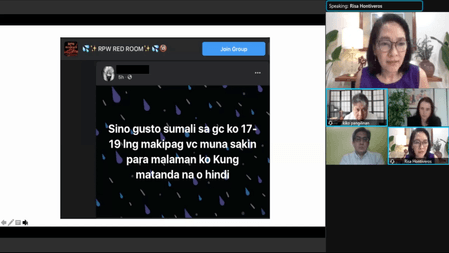





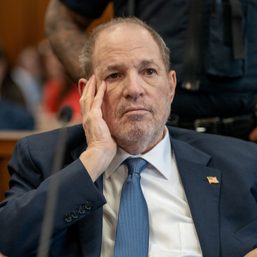

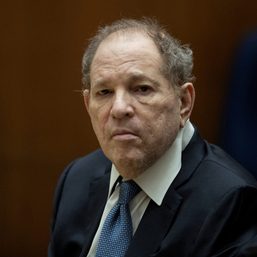

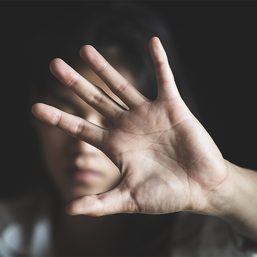
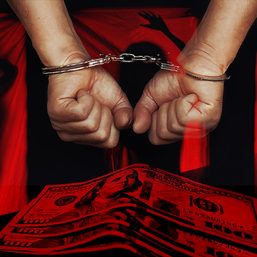

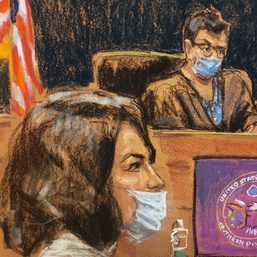


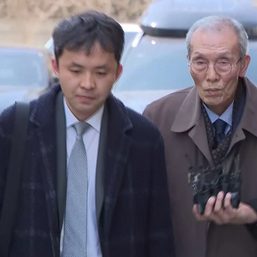

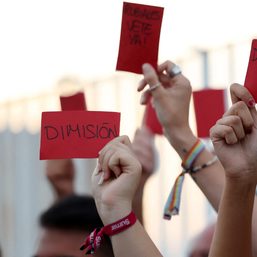



![[OPINION] The myth of the individual narrative in the struggle against sexual violence](https://www.rappler.com/tachyon/2024/02/ispeak-struggle-for-safe-spaces-feb-7-2024.jpg?resize=257%2C257&crop=274px%2C0px%2C720px%2C720px)

![[OPINION] Data is crucial to preventing gender-based violence](https://www.rappler.com/tachyon/2023/11/TL-ogbv-nov-28-2023.jpg?resize=257%2C257&crop=271px%2C0px%2C720px%2C720px)
There are no comments yet. Add your comment to start the conversation.